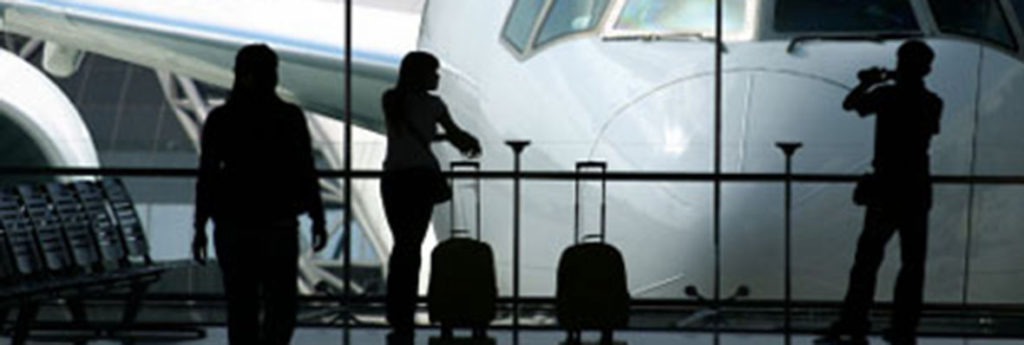For the first time in years, we’ve put our suitcases away. Flights have been cancelled. The shared Google calendar where we tracked each other’s travel schedules is empty for the foreseeable future. For my husband and me, travel has been a constant of our more than decade together.
Long multi-country trips with American presidents on Air Force One and weeks spent in political battleground states for me, Monday through Thursday consultant travel and, more recently, quick trips to a new employer’s London headquarters for him.
It’s often stressful, just as often exhilarating. The suitcases on the bedroom floor in a half-unpacked, half-packed state meant the prospect of discovering a new destination or returning to a familiar locale. Business trips offered the chance to find a place worth returning to someday just for fun.
The world seemed small, accessible. And I know how lucky we were to feel like it was.
Now, those same places seem so distant, so out of reach. And they quite literally are, with stay-at-home orders spreading and travel restricted to all but the essentials as the world strains to control the spread of the fast-moving coronavirus.
For us, the changes came slowly at first. My husband’s trip to San Francisco was scrapped as northern California grappled with an outbreak. Then the SXSW conference in Austin, Texas, which draws hundreds of thousands of people each year, cancelled.
I was still studying the Democratic presidential primary calendar, looking for an upcoming state to travel to for a story. But those states kept pushing their contests further back, until there was nothing left on the horizon.
My last hope was a one-night trip to New York for a business dinner. I could wipe down the Amtrak seat with a disinfectant wipe, I figured. A colleague who had made the same trip offered a DIY tip: laying a dish towel over the tray table, then carefully depositing it in a Ziploc bag. Besides, how much grimier would Penn Station be in the middle of a pandemic than it is any other time?
Then my company restricted nonessential travel, and my business dinner didn’t make the cut. The next day, we all began to work from home.
Now our world actually is small, centred around our compact city house with its postage-stamp sized backyard. Forget planes and trains; we’ve driven our car once in nearly three weeks.
Ours is hardly a hardship tale, particularly at a time when so many people around the world are ill and so many others are facing financial hardship. We both have our jobs, and our freezer and pantry are well-stocked. Working from home has given us more time to spend with our 2-year-old son and our attention-hungry dog. We recognize how fortunate we are.
Still, just a few weeks into this new reality, I find myself longing for the world. Not any place in particular. Simply the ability to be out in it.
When I make my midday escape for a walk around our neighbourhood, I keep looking to the sky to see how many planes I can spot flying overhead. We’re just a few miles away from Reagan National Airport. But on most days, I’m lucky if I spot one.
At night, I scan the news and find myself pausing to scroll through photo galleries of iconic locations around the world, many of them places I’ve visited. At first, there’s something eerily beautiful about the empty scenes at the Eiffel Tower or St. Peter’s Square, the desolate streets of New York and San Francisco. Then it’s simply sad.
And I think to myself: Someday we’ll go back.
Julie Pace is The Associated Press’ Washington bureau chief.

